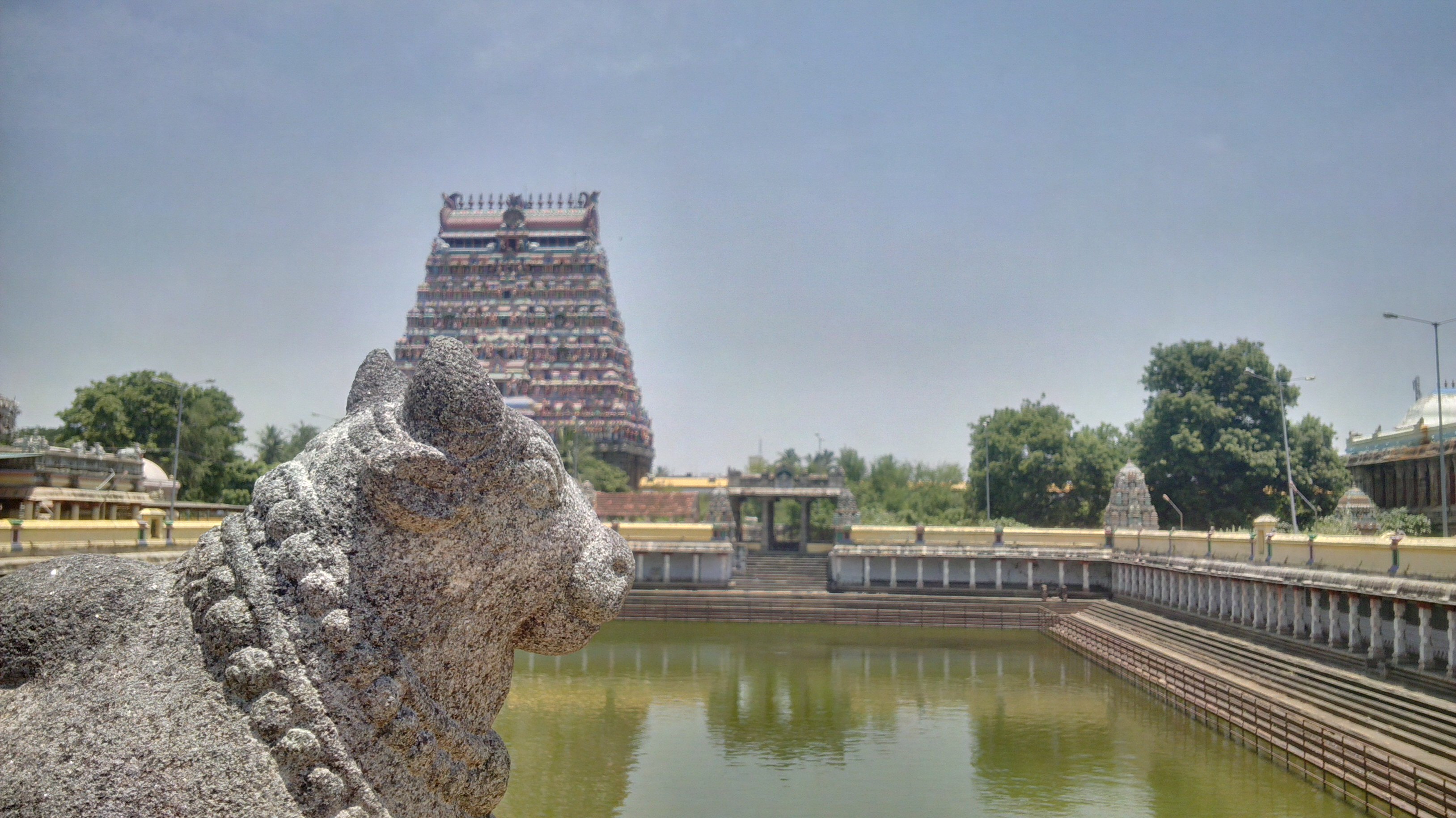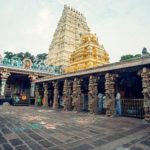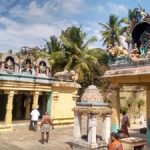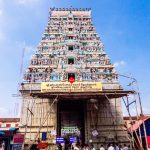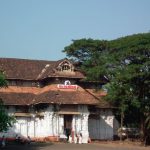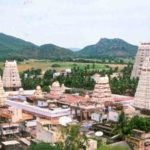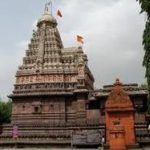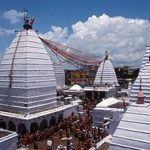Chidambaram Nataraja Temple is located in Chidambaram, Tamil Nadu. It is the prime Shiva shrine for Tamil Shaivites. However, it attracts pilgrims from across the world.
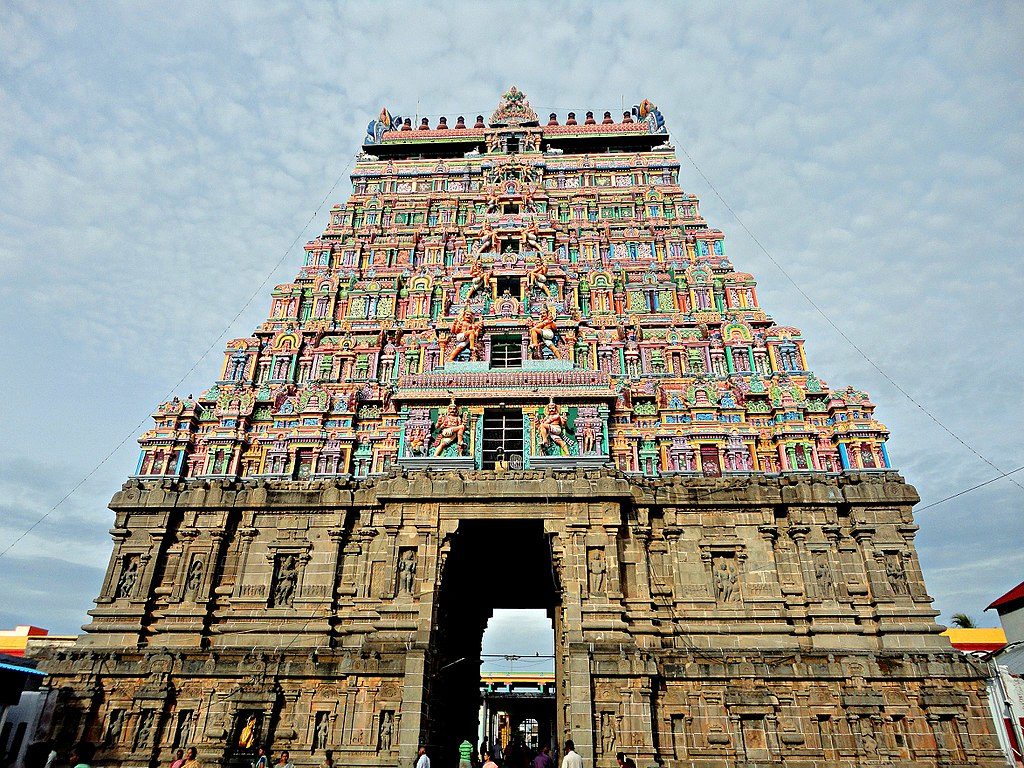
Chidambaram Nataraja Temple History
Sangam Tamil literary works mention this ancient temple. At that time, this temple was known as Thillai. Later the Cholas expanded the temple and built several huge halls, including the Chit Sabha, Kanaka Sabha, and the Nritya Sabha. They also built the temple tanks and many of the Gopurams. Later on, Pandya kings added more gopurams and other features.
After the pillage, looting, and destruction unleashed by Malik Kafur in the 14th Century, the temple lay in ruins. Eventually, the Vijayanagara Kings and later the Nayaks restored and renovated the temple.
Some Interesting Facts About This Temple
Natya Shastra: This temple is also famous for the depiction of the 108 mudras mentioned in Bharata Muni’s Natya Sastra.
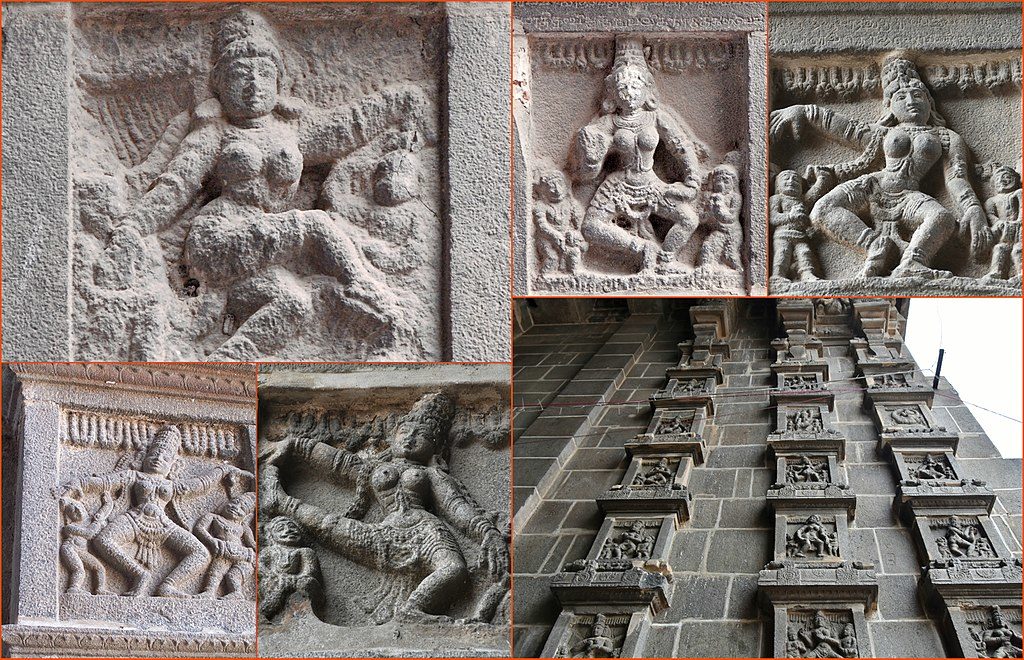
Major Festival: The 10-day Arudra Festival is celebrated in Margazhi (Dec-Jan). It begins on Thiruvathira Day. Then, there is the 10-day Aani Thirumanjanam Festival (Jun-Jul).
Shiva in Three Forms: In the main Nataraja shrine, Shiva is present in three forms. There is the representative form, the Spatika Linga. Second is Nataraja, the human form. Then, there is the empty space behind a curtain. This represents Shiva in the Akasha aspect (space or ether among the five elements). This is the Chidambara Rahasyam.
Chidambaram Nataraja Swamy Temple Timings: The temple opens for Darshan at 5:00 am and stays open until 12:30 pm. Then, it opens from 4:30 pm to 10:00 pm.
For Chidambaram Nataraja temple photos and further details, visit the Chidambaram Nataraja Temple’s official website – http://www.chidambaramnataraja.org/
Chidambaram Nataraja Temple Architecture
This temple is a sprawling 50-acre complex. There are numerous pillared corridors and halls, with the interiors laid out in stacked squares. Moreover, this temple has nine gopurams, with four main entryway gopurams. The eastern gopuram has
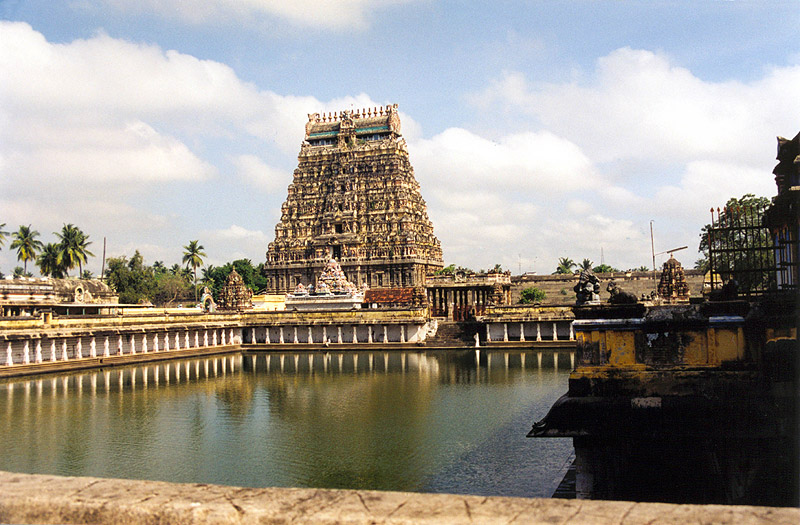
The Deities At Chidambaram Nataraja Temple
This is a Shaivite temple, so Shiva is the primary deity. The original deity is a swayambhu lingam called Thirumoolanathar. Even so, Nataraja is the presiding deity. His consort is Sivakami or Sivakama Sundari. Thevaram songs composed by Appar, Sambandar, Sundarar, and Manickavasagar praise this Chidambara Kshetram.
There are also separate shrines for Ganapathy and Shanmukha. Surya is present as a three-headed figure, representing Brahma, Vishnu, and Shiva. Uniquely, there is also a major Vishnu shrine near the Nataraja shrine. Songs by Tamil Vaishnavite saint poets, the Alwars, refer to this Govindaraja shrine as Chitrakoodam
The Unforgettable Legends Of Chidambaram Nataraja Temple
The Thillai Forest
Shiva and Vishnu came to Thillai vanam as Nataraja and the enchantress Mohini respectively. They came to correct the misguided ascetics here who were in pursuit of magical powers instead of spiritual wisdom. The men and women here were bewitched by the couple and the blissful dance of Nataraja. Eventually, the ascetics realized their mistake and abandoned their pursuits of special powers.
Moolanatheswara
Shiva later performed his Ananda Thandavam here for Adi Sesha and for the Rishis
Nataraja
The Ananda Tandava form of Shiva as Nataraja was installed during the Chola Period. Nataraja then became the primary deity.
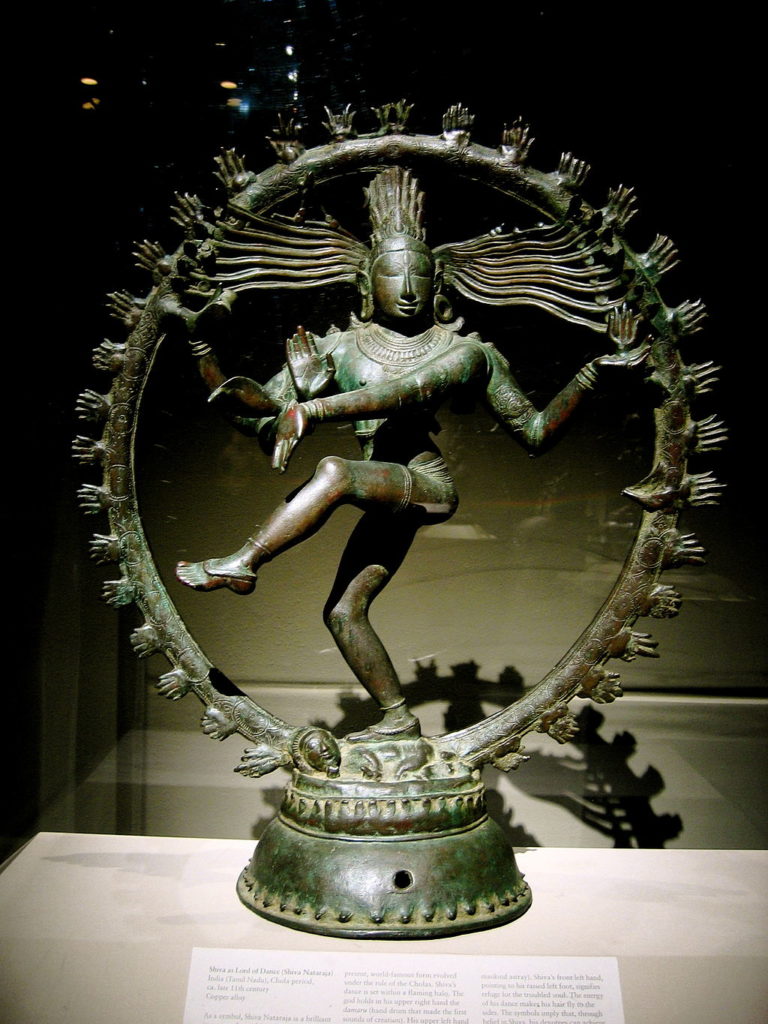
Travel Route to Chidambaram Nataraja Temple
Chidambaram Temple is located 220 kilometres to the south of Chennai. NH-32 passes through Chidambaram. You can also get a bus or train to this temple from many other South Indian cities. If you are flying in from other places, the nearest airport is at Puducherry.
Must-visit Places
While in Chidambaram, you can also visit other attractions. The Govindaraja Temple is within the Chidambaram Nataraja Temple. Thillai Kali Kovil is nearby. You can also visit the Pichavaram Mangrove Forest and the Backwaters.
Significance of Chidambaram Nataraja Temple
Chidambaram is one of the elemental temples of Shiva. This temple represents Akasha or Space. Nataraja’s dance pose is also symbolic. Firstly, the Demon Muyalaka beneath his feet represents ignorance. The fire in his hands represents annihilation of evil. While the ring in the background stands for the cosmos, the drum represents the act of creation. Nataraja’s raised hand, of course, signifies blessing and protection.
Chidambaram Nataraja Temple is a wonderful pilgrimage destination with deep mystic symbolism. When you visit the region, you can also easily travel to other temples like Thillai Kali, Patanjali Eswarar, and Swarnapureeswarar. Visit this temple especially during the Margazhi or Aani Festivals for spiritual upliftment.




